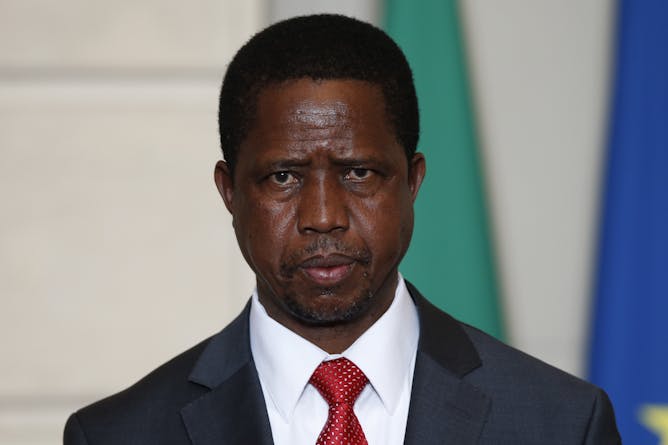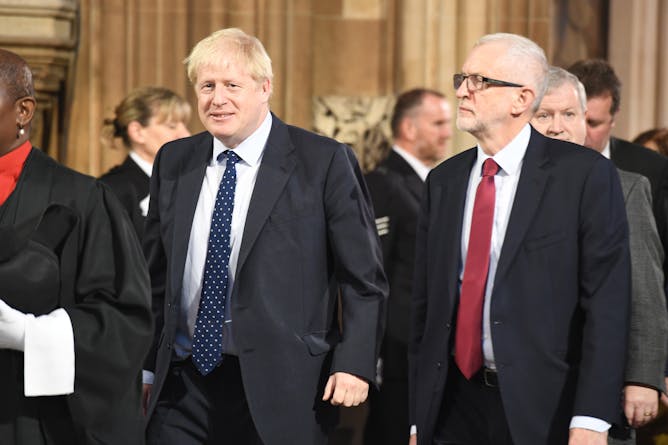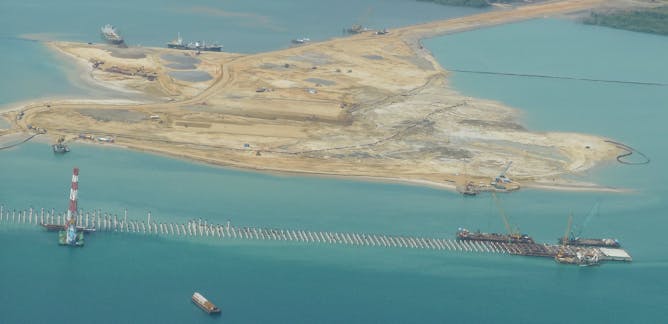|
A lot has been said about the devastating impact of “Big Men” on politics, democracy, economic development, peace and stability in African countries. Not so much has been said about what has contributed to a predisposition to authoritarianism and instability on the continent. Nic Cheeseman and Jonathan Fisher show how the pathway that so many African states followed after colonial rule was marked out by the undemocratic and repressive ways in which colonial powers ran the territories they subjugated.
In the United Kingdom, Premier Boris Johnson is in the eye of the Brexit storm as the country heads into a general election on December 12. By sidestepping Parliament, Johnson is hoping that the electorate will help push through his proposal to make a clean break from the European Union. But, as Simon Tormey writes, gambling on the public could leave the prime minister worse off than he started.
|

Zambian President Edgar Lungu’s increasingly repressive government uses colonial-era laws to silence dissent.
EFE-EPA/ EPA/Phillipe Wojazer
Nic Cheeseman, University of Birmingham; Jonathan Fisher, University of Birmingham
The unstable authoritarian pathway that many post-colonial African states followed was facilitated by the way in which European empires undermined democratic elements within African societies.
|

Weary UK voters head to the polls again on December 12 – will Boris Johnson or Jeremy Corbyn be prime minister after it?
AAP/EPA/UK parliament handout
Simon Tormey, University of Bristol
There is a chance – just a chance – that far from smoothing the UK’s exit from the EU, the election blows up in Johnson’s face and delivers a remain parliament.
|
Business + Economy
|

Seth Schindler, University of Manchester; Juan Miguel Kanai, University of Sheffield
A new push to focus development efforts on big infrastructure projects could have unitended consequences.
| |

Michael O'Regan, Bournemouth University
Airbnb now has 7m listings in more than 100,000 cities, making it larger than the eight biggest hotel groups combined.
|
|
|
Science + Technology
|

Ariadna Matamoros-Fernández, Queensland University of Technology; Joanne Gray, Queensland University of Technology
Algorithms can amplify toxic content, but the problems start in human communities.
| |

Leigh Clark, Swansea University; Benjamin Cowan, University College Dublin
The likes of Alexa and Siri shouldn't blindly aim to sound and behave like us - their voices need to reflect what they can actually do.
|
|
|
Health + Medicine
|

Jessica Grieger, University of Adelaide; Robert Norman, University of Adelaide
There's an app for just about everything nowadays. But if you're trying to have a baby, relying on a fertility app to tell you the best time to conceive is probably not your best bet.
| |

Oliver van Hecke, University of Oxford
Unnecessary antibiotic prescriptions are not only wasteful, but may also have unintended consequences for a child's health.
|
|
|
Arts + Culture
|
-
Dan Feather, Liverpool John Moores University
The historic sporting rivalry between England and South Africa has often been marred by political protests and controversy.
|
|